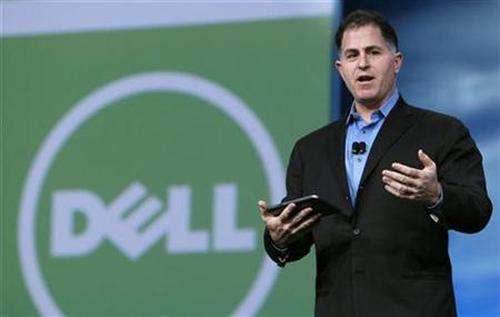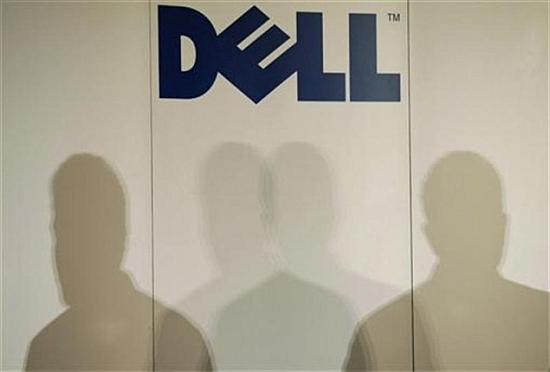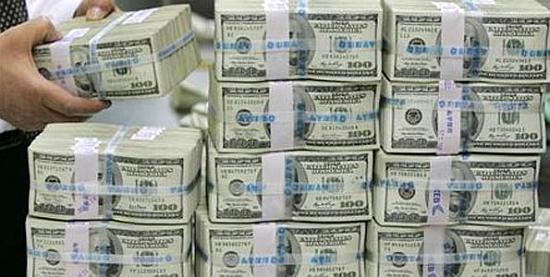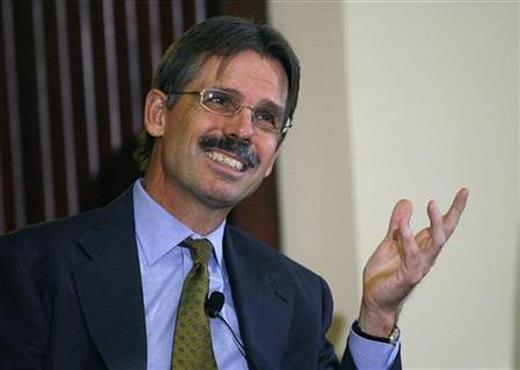 | « Back to article | Print this article |
Why Silver Lakes is betting big on Dell?
For years, many Wall Street investors wrote off Dell Inc as a dying personal computer company that has failed to adapt to a new era of tablets and smartphones.
But Silver Lake Partners, one of the most respected technology investors in Silicon Valley, is betting about $1 billion that they're wrong.
The private equity firm believes that Dell's computers, bundled with its growing enterprise business, will become a launchpad to offer one-stop software services for corporate clients.
It's a risky gamble for Silver Lake: Dell is the firm's largest equity investment ever, it will only have a minority stake, and there is no clear exit strategy because obvious strategic buyers of Dell are scarce.
The tech company is also dwarfed by IBM and Hewlett-Packard Co in the enterprise computing market, although Silver Lake thinks Dell can compete for smaller corporate clients by coupling its hardware with storage, networking, security, cloud and other software offerings.
"If you are a little 500-person company, there are not many people knocking on the door that have a lightweight low-cost solution to do that. All this complexity in enterprise plays into the favor of Dell," said a person familiar with the buyout consortium's plans.
Click NEXT to read more...
Why Silver Lakes is betting big on Dell?
"As you get a bigger presence within enterprise you have an integrated environment you get to pull through around PCs. The plan is to be on offense," added the person, who was not authorised to speak publicly about the deal.
Silver Lake joins Michael Dell in the $24.4 billion leveraged buyout, the largest since the financial crisis.
The deal offers a 25 percent premium to Dell's market price before new of the talks emerged in mid-January, but Silver Lake believes it is still getting a cheap price for the world's No.3 PC maker.
The $13.65 deal price is about 8 times Dell's estimated forward earnings. That is low compared with the average 12 times valuation that Dell's peer group trades at, according to Thomson Reuters data.
Silver Lake has made no public statements about the deal. Dell executives have said the company will stick to a strategy of expanding its software and services offerings with the goal of becoming a full-service provider of corporate computing services in the mold of highly profitable IBM.
They played down speculation that Dell might spin off the low-margin PC business on which it made its name.
Click NEXT to read more...
Why Silver Lakes is betting big on Dell?
Unconventional Investment
Making a sizeable minority investment in a mature company such as Dell goes against Silver Lake's usual investing pattern, and some in the investment community view it as a risky strategy that will test its track record.
Silver Lake's roughly $1 billion investment in Dell is its biggest equity commitment, after it put $900 million into Internet phone company Skype in 2009, people familiar with the matter said.
"For $100 million you take a punter's chance, for $1 billion you are all in," said the person familiar with the consortium's plans.
Dell founder and chief executive Michael Dell will gain a majority stake in the company he founded 29 years ago, while the Menlo Park, California-based buyout firm settles for a minority stake in return for its $1 billion check.
"This is not common for a deal of its size. I'm assuming Silver Lake will have some protective provisions in the agreement," said Steven Kaplan, a University of Chicago finance professor whose research focuses on private equity.
He said details on corporate governance and whether there will be a shareholders' agreement between Michael Dell and Silver Lake will probably not be known until the company files its proxy in about 45 days.
Click NEXT to read more...
Why Silver Lakes is betting big on Dell?
Silver Lake, whose best known investments include Skype and Chinese e-commerce giant Alibaba Group, made its name with growth-oriented investments in companies where it can call the shots.
When buyout firms invest in management buyouts without acquiring a majority stake, they would be betting on the vision and strategy of the management they are backing.
"Dell won't be an easy company to manage and, looking ahead, Silver Lake's fund investors might reflect on the fact that it looks easier for Michael Dell to manage this without Silver Lake, than the other way around," said Stephen Moseley, president of private equity advisory firm Rockland Management LLC.
The last time Silver Lake made a sizeable investment in a technology company without getting majority control was when it backed Alibaba and its founder and chief executive Jack Ma in 2011 for a reported $300 million. That investment was restricted by China's capital control rules.
Top Quartile
A driving force behind both the Skype and Dell deals is Silver Lake Managing Partner Egon Durban.
A former Morgan Stanley investment banker, Durban has been with Silver Lake since its founding and launched the firm's London office, which he ran between 2005 and 2010.
Click NEXT to read more...
Why Silver Lakes is betting big on Dell?
Glenn Hutchins, Jim Davidson and David Roux, now in their fifties, co-founded Silver Lake in 1999 and went on to invest in some of the technology sector's hottest properties.
Previously, Hutchins was a seasoned dealmaker at Blackstone Group LP and Davidson was a managing director at Hambrecht & Quist, a technology-focused investment bank.
Roux was CEO of Liberate Technologies and had also worked at Oracle Corp as a senior executive.
Their latest fund, Silver Lake Partners IV, started fundraising last year with a target to raise $7.5 billion.
Its preceding fund that they raised in 2007, the $9.3 billion Silver Lake Partners III, was valued at 1.37 times its investments as of the end of September, placing it among the top 25 percent of private equity funds based on performance, according to the New Jersey Division of Investment.
Since inception, Silver Lake has invested more than $12 billion in 48 companies, fully exiting 26 of those investments and generating $14.5 billion in gross proceeds as of the end of December 2012, according to New Jersey. Across Silver Lake's funds, investors have seen a net return of 1.58 times.
Skype is arguably Silver Lake's most famous and successful deal. It sold the internet phone company to Microsoft Corp for $8.5 billion in 2011 after buying it just 18 months earlier for $2.5 billion.
Microsoft said on Tuesday that it would make a $2 billion loan to help fund the Dell deal.

© Copyright 2025 Reuters Limited. All rights reserved. Republication or redistribution of Reuters content, including by framing or similar means, is expressly prohibited without the prior written consent of Reuters. Reuters shall not be liable for any errors or delays in the content, or for any actions taken in reliance thereon.




